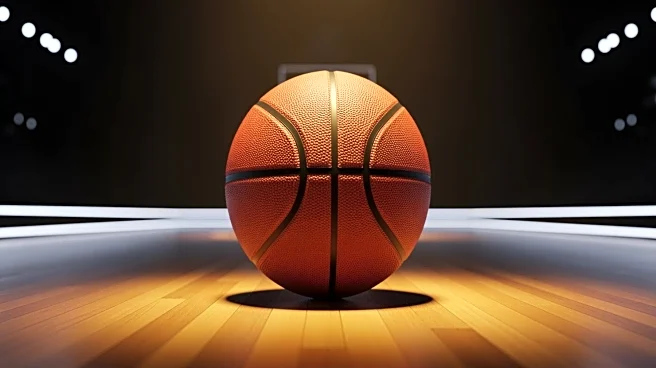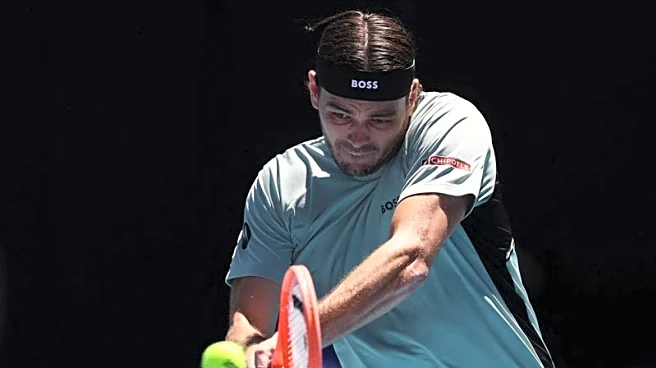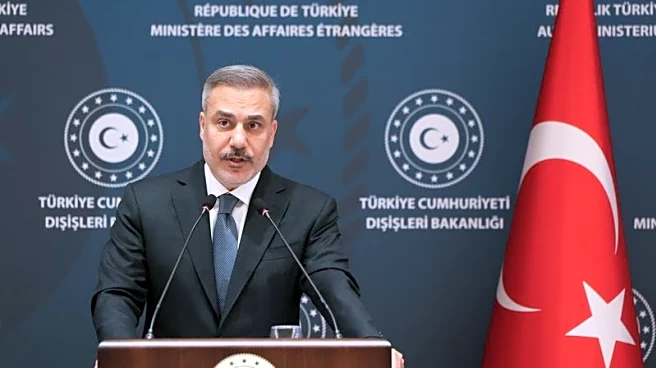What's Happening?
David Fletcher, a veteran infielder for the Atlanta Braves, has announced his retirement from professional baseball following an unsuccessful attempt to transition into pitching. Fletcher, who spent seven
years in Major League Baseball primarily with the Los Angeles Angels, tried to revitalize his career by becoming a pitcher in 2025. Despite showing promise in his initial outings, Fletcher struggled to maintain consistent performance, posting a 6.42 ERA over 23 appearances in the minor leagues. His decision to retire comes after the Braves declined his $8 million option for 2026, opting instead for a $1.5 million buyout. Fletcher's career included a notable stint with the Angels, where he was a fan favorite and signed a $26 million contract in 2021.
Why It's Important?
Fletcher's retirement marks the end of a notable MLB career, highlighting the challenges athletes face when attempting significant role changes late in their careers. His transition from infielder to pitcher underscores the difficulty of adapting to new positions at the professional level. Fletcher's departure also reflects the Braves' ongoing efforts to restructure their roster following several disappointing seasons. The team's decision to decline Fletcher's option indicates a strategic shift towards investing in new talent and potentially reallocating resources to strengthen their pitching lineup. Fletcher's retirement may influence other players considering similar career changes, emphasizing the risks and rewards associated with such decisions.
What's Next?
With Fletcher's retirement, the Braves will likely focus on acquiring new talent to fill gaps in their roster. The team may explore free agency options or trades to bolster their pitching staff, aiming to improve their performance in upcoming seasons. Fletcher's departure opens opportunities for younger players in the Braves' minor league system to step up and potentially secure spots in the major league roster. The Braves' management will continue to evaluate their strategic direction, balancing the need for experienced players with the potential of emerging talent.
Beyond the Headlines
Fletcher's career shift and subsequent retirement highlight broader themes in professional sports, such as the pressures athletes face to adapt and evolve. His story may inspire discussions on the support systems available to players undergoing significant transitions, including coaching, training, and mental health resources. Fletcher's experience also raises questions about the financial implications of career changes, as athletes weigh the risks of new ventures against the security of established roles.










